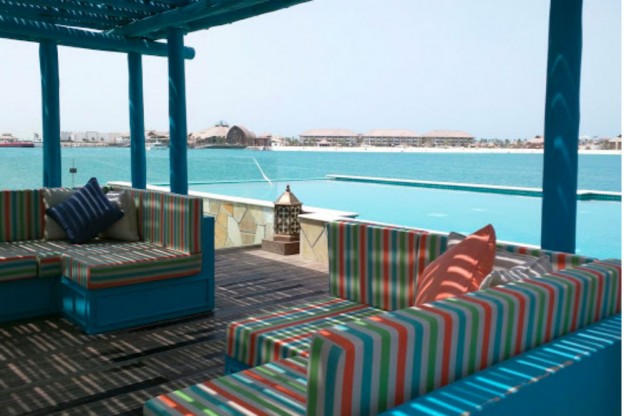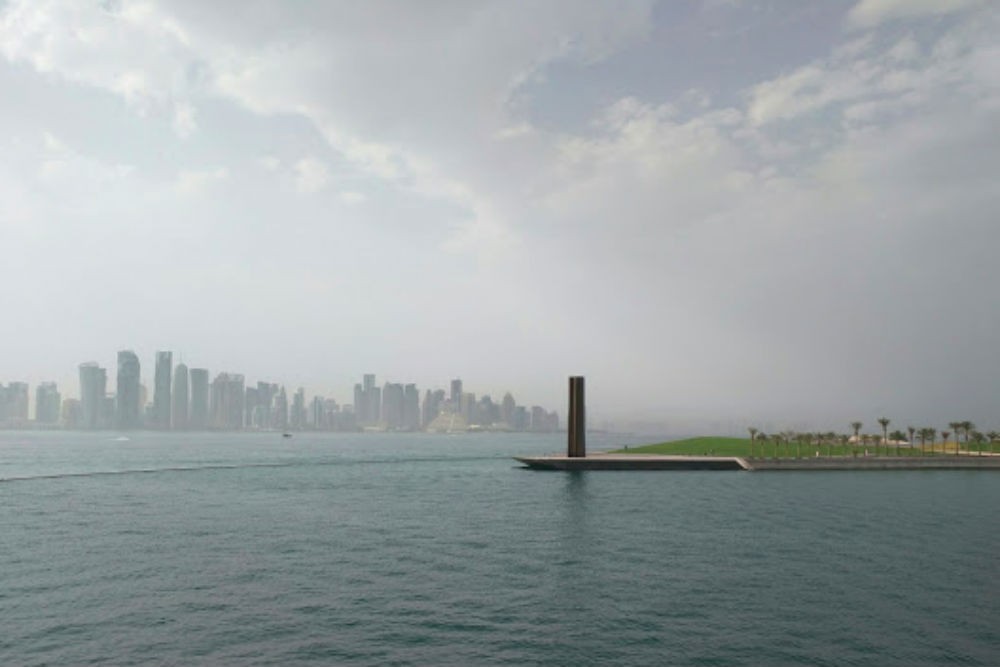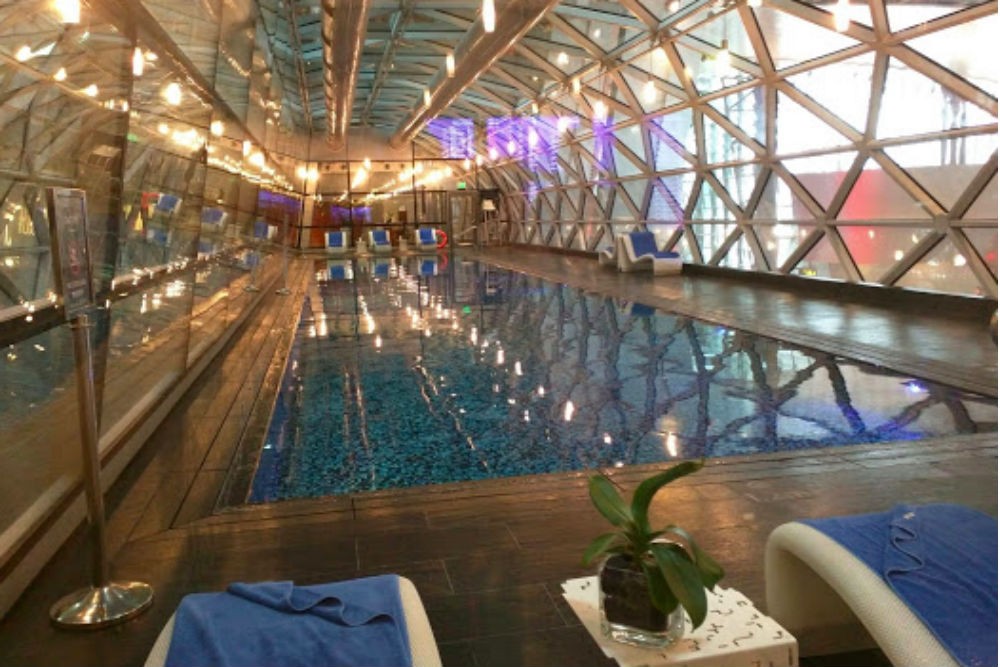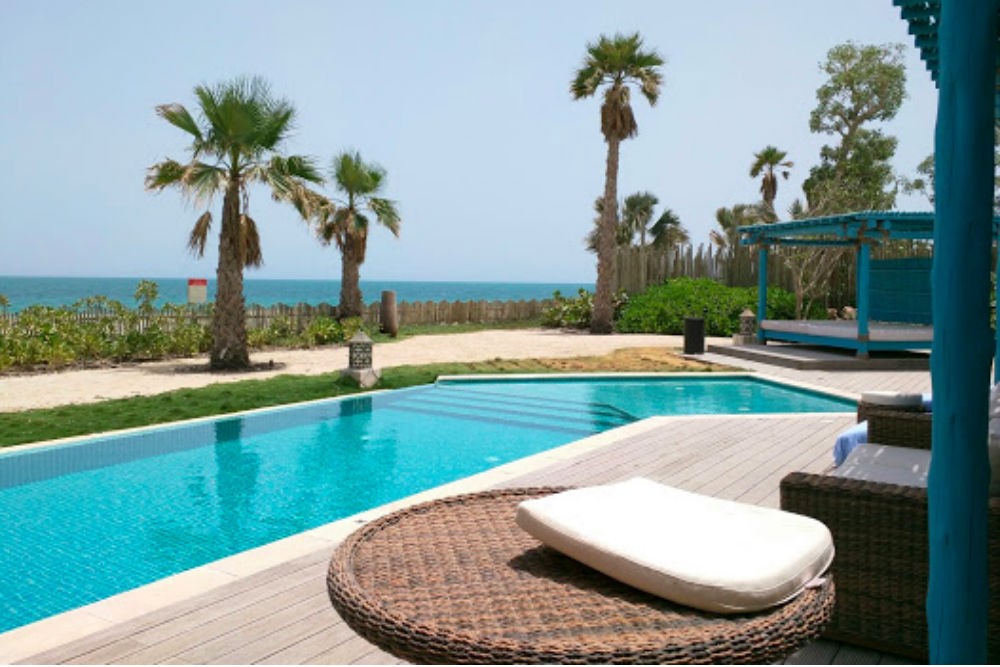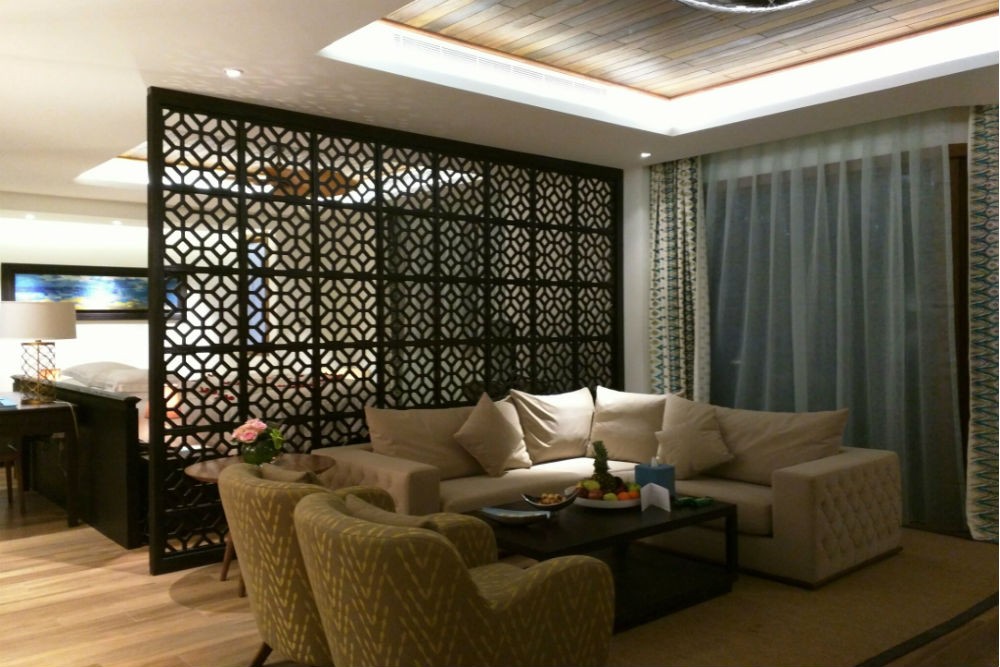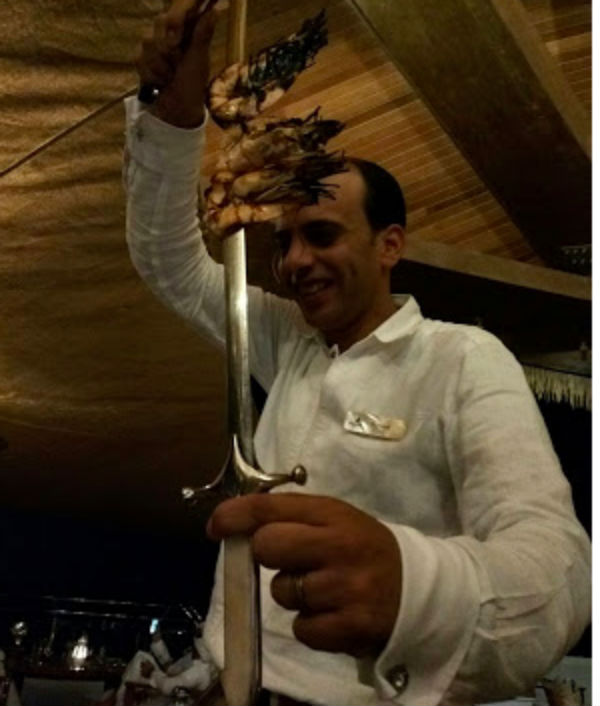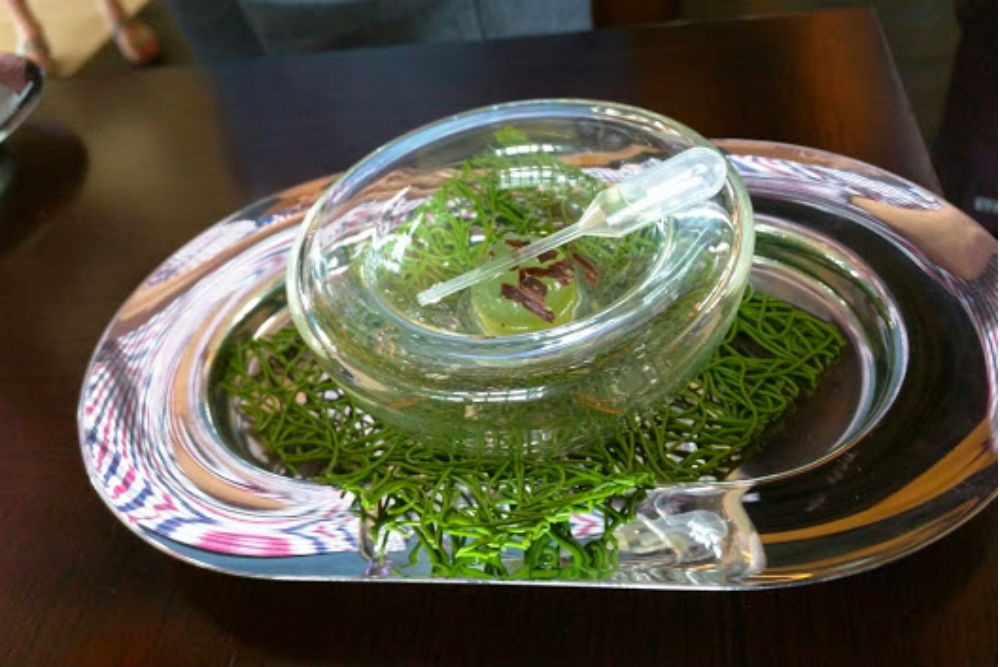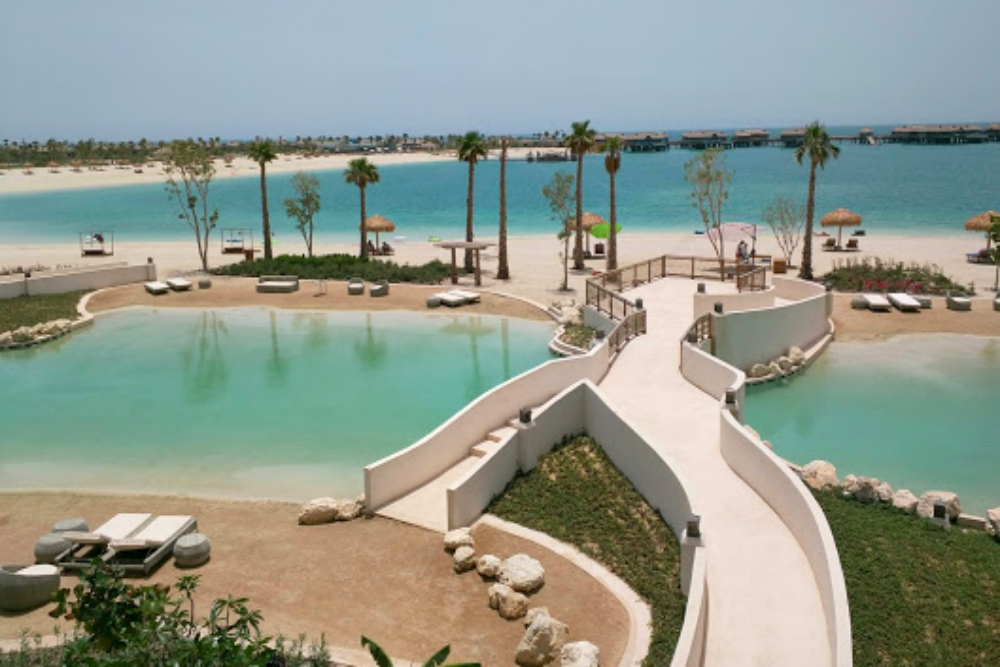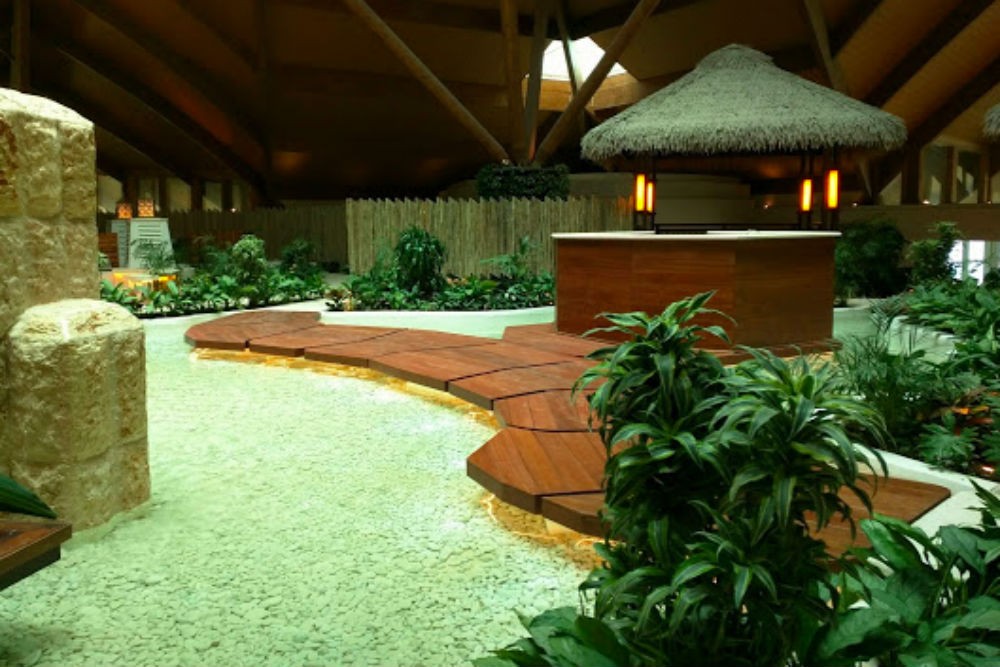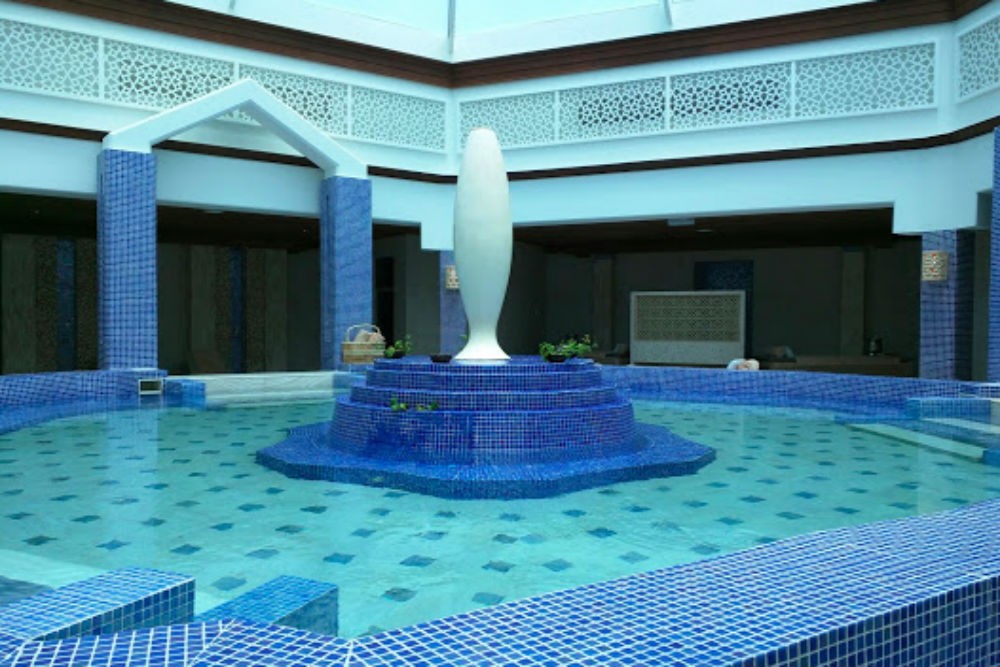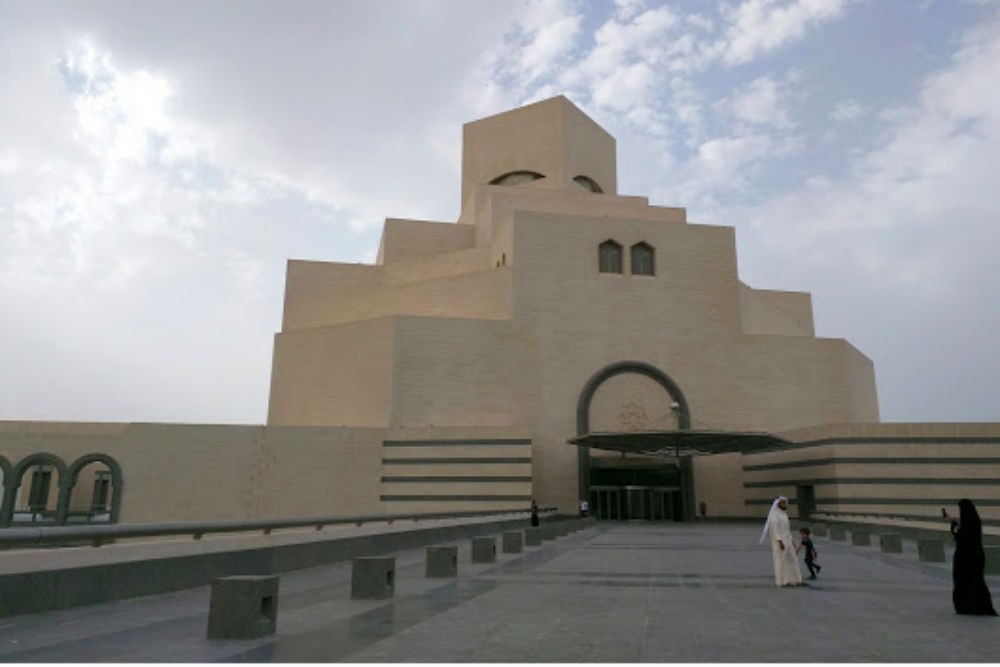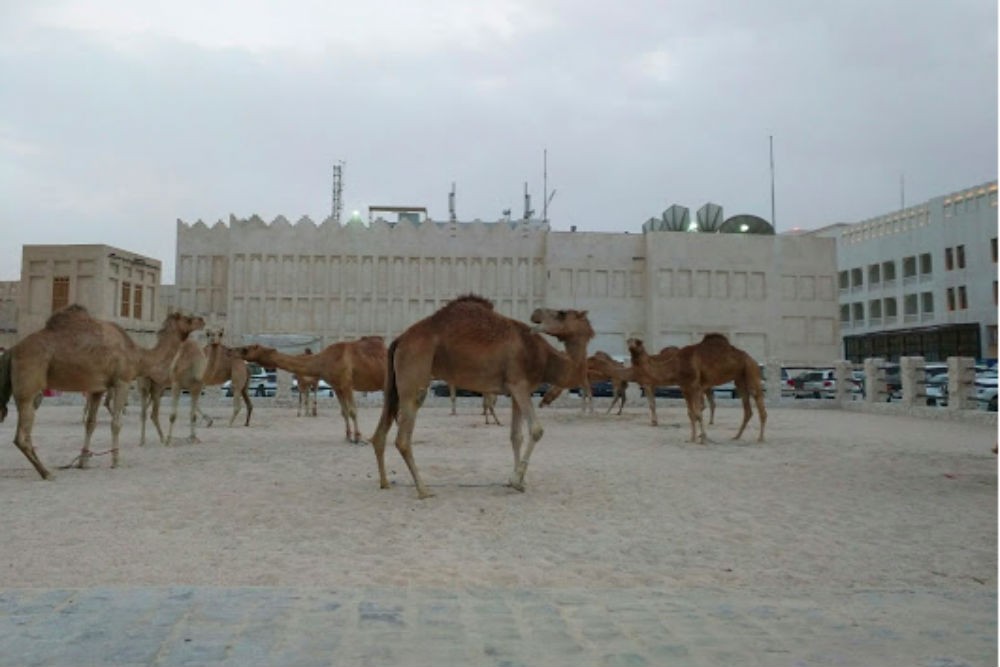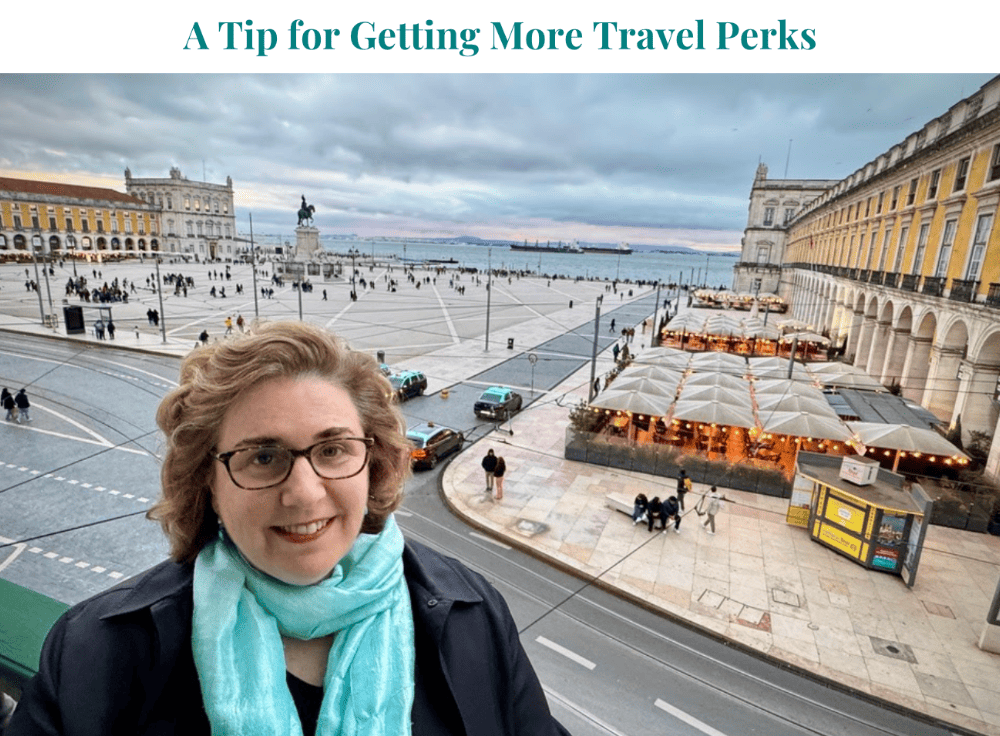Last month I was in Qatar, checking out Anantara’s new Banana Island Resort. Ever since Doha was chosen to host the 2022 FIFA World Cup, Qatar’s capital city has been attempting to rival Dubai as the Gulf region’s It destination. It’s succeeded in some areas (creating a top-notch national air carrier, attracting high-end hotels from all the big names—St. Regis, Four Seasons, Ritz-Carlton, Kempinski), and failed in others (the highly publicized FIFA bribery scandal related to the awarding of the World Cup to Qatar, and reports about the country’s human rights issues and the high number of migrant worker deaths).
I was in Doha in May, about two weeks before the FIFA arrests were made, and since I spent most of my time on the private Banana Island or at tourist sites in Doha, I didn’t see much about these issues first-hand. That doesn’t excuse them, however they pan out, but it does echo an experience that travelers have all over the world, no matter where we go: Unless we’re there specifically to explore difficult aspects of day-to-day local life, we don’t often get close enough to see them.
Certainly bribery, workers’ rights, and government abuse are not vices limited to the country of Qatar. Two weeks after my trip to Doha, I was in South Africa—and no one would ever say that that government always had the right idea about human rights. But it’s still an amazing place to visit and I would recommend it without hesitation (and I do in another article). A week after that, I came home to New York, where the wealth gap is almost as staggering as in Qatar and hunger still persists. And now there’s Charleston. And still, I would tell anyone that both of those cities are must-visit destinations (in fact, I’m a tour guide here in NYC). I don’t want to get too depressing, but my point is that no place is paradise. Even paradise. Sad stories of people being horrible to each other can be found everywhere—and that is part of the reason many of us travel: to find the good stories and the wonderful people and the amazing places and the eye-opening experiences.
When I came home, I felt that Doha was one of those eye-opening places worth visiting. It’s different (culturally, socially, in terms of gender roles, lifestyles, food, art and architecture)…and also so much the same (for example, brand names matter just like in any fashionable cosmopolitan city, and our group even stumbled on a Shake Shack and a Magnolia Cupcakes at a mall).
I greatly enjoyed my time in the city and at the Banana Island Resort Doha by Anantara, where I was hosted. I met good people there who had interesting stories and cool talents, and who are working hard to make a luxury vacation spot for anyone who’s interested. Right now, most of who’s interested are locals of the Gulf Corporation Council countries (Bahrain, Kuwait, Oman, Qatar, Saudi Arabia, and the UAE); but Europeans are starting to arrive and the hope is that Americans will too.
Here are five reasons that struck me as to why Doha is definitely worth a visit.
1. At this moment in time, Qatar is changing fast, and it’s fascinating.
A peninsula country that sticks out into the Persian Gulf and is land-bordered only by Saudi Arabia, Qatar is all but surrounded by almost-fluorescent turquoise water. It’s very safe (virtually no crime), very modern, and very wealthy.
The country is a Muslim monarchy run by Sheikh Tamim bin Hamad bin Khalifa Al Thani (who peacefully took over from his father in 2013). The whole peninsula is only 100 miles long, with a population around 2.3 million. What I found fascinating is that only something like 12% of the population is actually Qatari, and the wealth of local Qataris is staggering. They have one of the highest GDPs per capita in the world (about $100,000 per head) and citizens also get free food and healthcare, all funded by the country’s wealth from natural gas. The rest of Qatar’s population is made up of expat professionals and migrant workers, many who’ve arrived in the past few years to help build up Doha for the 2022 FIFA World Cup. Thanks to all the eyes on Qatar now, along with the government’s own agenda to make the city very visitor-friendly, the city is likely to change a lot over the next few years. If you go now, you’ll see that transition take place. As always, a good guide will be able to explain more about the social context and lift the curtain on some of the cultural complexities you’re not likely to fully grasp on your own.
2. Qatar is an easy introduction to the Middle East, and it’s easy to get to.
Qatar Airways has just added nonstop flights from Boston to Doha and will start direct flights from LAX in January 2016, making the city more accessible than ever. Like its fellow mid-east airlines, QA has raised the bar in business-class travel. The lie-flat seats are very comfortable, the food is very good, and as a result the flight turns into its own enjoyable part of the trip.
The airline is also trying to promote the city as an ideal stopover location—a place to add on a few days of vacation before or after a business trip, or in conjunction with another trip to the Middle East. The airport alone is worth spending a few hours in; there’s a pool, squash courts, and a spa.
3. Anantara has created an ideal place to stay.
Many familiar luxury hotel brands have staked out spots in Doha, but Anantara has created a pretty special retreat, on the private Banana Island, a 20-minute water taxi ride from the mainland. The taxi plies the waters all day long, and the port—more like a luxe hotel lobby—is a short distance from all the city’s main sites. This means you can duck into Doha for the day, visit the stunning Museum of Islamic Art, the lesser-known but equally fascinating Mathaf: Arab Museum of Modern Art, and the bustling Souq Waqif, and then buzz back to the resort for a relaxing evening of good food and long views of the sea. What’s interesting is that locals are coming in droves to the island on the opposite schedule: Anantara sells weekday evening packages that include water-taxi tickets and a credit at one of the resort’s restaurants. The nearly 250 daily takers aren’t required to stay overnight; instead, they get to enjoy the island as a night out.
For guests, the food options are available anytime. And most of it is really good. Six restaurants cover a range of cuisines, including an “American” diner called Ted’s (I didn’t even try it). More interesting are the Arabian options at Al Nahham (camel shawarma, giant grilled shrimp) and 14 kinds of hummus at Q Lounge (beetroot and walnut, fig, artichoke, beef bacon).
A lot is likely to be made of the fact that this is a dry resort—meaning, no alcohol—in order to follow cultural norms. But this seeming “lack” is anything but. Personally, I am not a big drinker, and I’m often disappointed that friends get to indulge in bright, fruity and interesting cocktails while I sip seltzer or some supersweet mocktail. Here, the nonalcoholic creations blow away any boozy concoctions you can imagine; they are their own delicious category. The driving force behind the creativity is the resort’s mixology director, Alexandre Hersent, who gave us a behind-the-scenes demonstration of how he prepares some of the molecular-gastronomy-inspired beverages, like the “Z daiquiri” of smoked apple juice with spice-infused honey, or his science-experiment twist on the city’s ubiquitous traditional lemon and mint drink. Hersent’s version (pictured below) has a semi-frozen ball of lemon and mint that pops open in your mouth. As usual with creative types, the limits seem to have made the food and beverage programs all the better here.
4. Once you’re back from the city’s sites, there are activities galore.
The Persian Gulf is so turquoise blue here, it’s enough just to sit on a balcony or patio staring at it. But for more active types and those with kids in tow, this resort is full of family-friendly activities: You can kayak, snorkel, get scuba certified, go windsurfing, or hit the surf pool. There’s a kids’ club with a giant indoor climbing-obstacle-course thing; a teen center with foosball, air hockey tables, and PlayStation nooks; a bowling alley; tennis courts; and a movie theater complete with buckets of popcorn.
For adults, there’s both a spa and a wellness center. Guests at the wellness center first see a specialist who determines their needs and then helps them choose from a suggested menu of holistic-health treatments like lymphatic drainage massages, infrared detox, nutritional consultations, and time in a zero-gravity float pod. You get the idea.
In a totally different part of the island, you’ll find the spa, where indulgences and pampering are the focus. Here, men and women divide into separate areas, and all have access to the usual high-quality Anantara menu of massages, facials, etc. The standout experience is definitely the hammam, where you’ll be soaked, steamed, covered in mud, massaged, exfoliated, and at the end doused with icy water. Invigorating to say the least.
5. Doha is safe and family-friendly.
Overall, Doha felt very safe. We saw families almost everywhere we visited, and observed a range of dress codes (though all conservative and covered). Shopkeepers were friendly, used to tourists, and just as ready to take our money as anywhere I’ve traveled.
Personally, I would recommend hiring a guide to take you through the city, not necessarily for safety reasons but more because, as with so many travel experiences, you will get more out of it if you have a plugged-in guide to talk you through the context and point out things you might not otherwise notice or understand.
The resort itself feels comfortable and secure. Everything you need is onsite, and the staff (who speak English and come from 60+ countries) are constantly interacting with the guests. You can’t pass anyone who works here without them saying hello to you; buggies regularly traverse the grounds to take you wherever you need to go; and I noticed good-service indicators like guest names and arrival dates listed on a whiteboard in one of the restaurant kitchens. What’s more, the lack of alcohol means you won’t run into any rowdy nightlife seekers, though the scene here is still lively; on weekends, guests stayed out late socializing and smoking scented shisha pipes at one of the restaurants overlooking the water.
* Full disclosure: I was hosted by Anantara and my flights, on Qatar Airways, were paid for. That said, Wendy and I don’t accept any travel experience we don’t believe will be up to our readers’ standards, and as Anantara properties have long been favorites of luxury travelers, and as the brand is quickly ramping up its presence in the Middle East, we agreed it was an ideal time to explore the tourism options here.
In keeping with WendyPerrin.com standard practice, there was no expectation of coverage on our hosts’ part, nor was anything promised on ours. You can read our signed agreements with Qatar Airways here and with Anantara Hotels & Resorts here.

